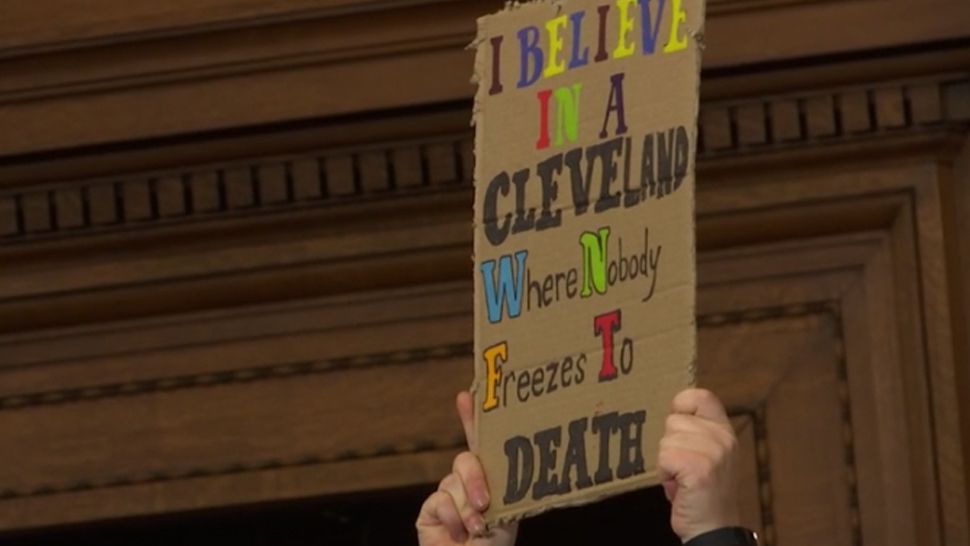AKRON, Ohio — Spectrum News 1 is partnering with WKSU in Kent and the Cleveland Plain Dealer for a project that speaks to the real issues people are facing, specifically housing. This collaboration is supported, in part, through a grant from the Cleveland Foundation.
Nearly 58,000 people are evicted from their homes every year in Ohio. The City of Akron has the highest eviction rate in the state and ranks 24th in the nation.
- More than 20 percent of Akron's population lives in poverty and about 7 families are evicted every day
- Not knowing what the rights are for landlords and tenants are part of the problem
- Evictions start with the landlord filing an action in court and the process moves quickly
"Which is not surprising, when you look at the poverty population in the community, there is a strong correlation between poverty rates and eviction rates," said Steven McGarrity, executive director, Community Legal Aid in Akron.
According to Eviction Lab, a research organization that studies the prevalence and causes of eviction nationwide, more than 20 percent of Akron's population lives in poverty. About seven families are evicted every day.
"It's being compounded by other issues in our community like lack of affordable housing, increasing rent rates, conditions of properties not being kept up, it is something that's been ongoing," said Lauren Green-Hull, associate director, Fair Housing Contact Service, Akron. "We recognize eviction as a crisis, but it's not a new crisis in our community."
Both landlords and tenants have rights, but not knowing what they are is part of the problem.
At Community Legal Aid in Akron, employees work with tenants through the eviction process. McGarrity says no matter how bad conditions are, never stop paying rent.
"In Ohio, if you don't pay your rent it's harder to argue against the court granting the eviction. When the landlord doesn't do what they're supposed to do in terms of keeping the rental unit safe and sanitary, is to go to court and pay their rent to the court in a process called rent escrow," said McGarrity.
Ohio law allows a tenant to pay rent to the court to force a landlord to make repairs. The next move is up to the court and the landlord.
Landlords have the right to evict tenants for not paying rent and they can also evict tenants once their lease expires for no reason at all.
Evictions start with the landlord filing an action in court and then the process moves fairly quickly. Tenants have sometimes a few weeks or, in some cases, just days to leave their unit.
"If you don't leave as the court said you had to, then the court bailiff will come and literally take everything you own and put it on the curb and leave it there," said McGarrity.
Fair Housing Contact Service in Akron, a housing counseling service, fields thousands of calls every month about tenant-landlord matters. Housing discrimination is the main concern.
Green-Hull says they've formed an eviction task force with other community leaders in hopes of getting ahead of the mounting eviction crisis.
"Ideally we would like to see eviction filings reduced, it is a challenge for our community to deal with the volume that currently exists," said Green-Hull.









